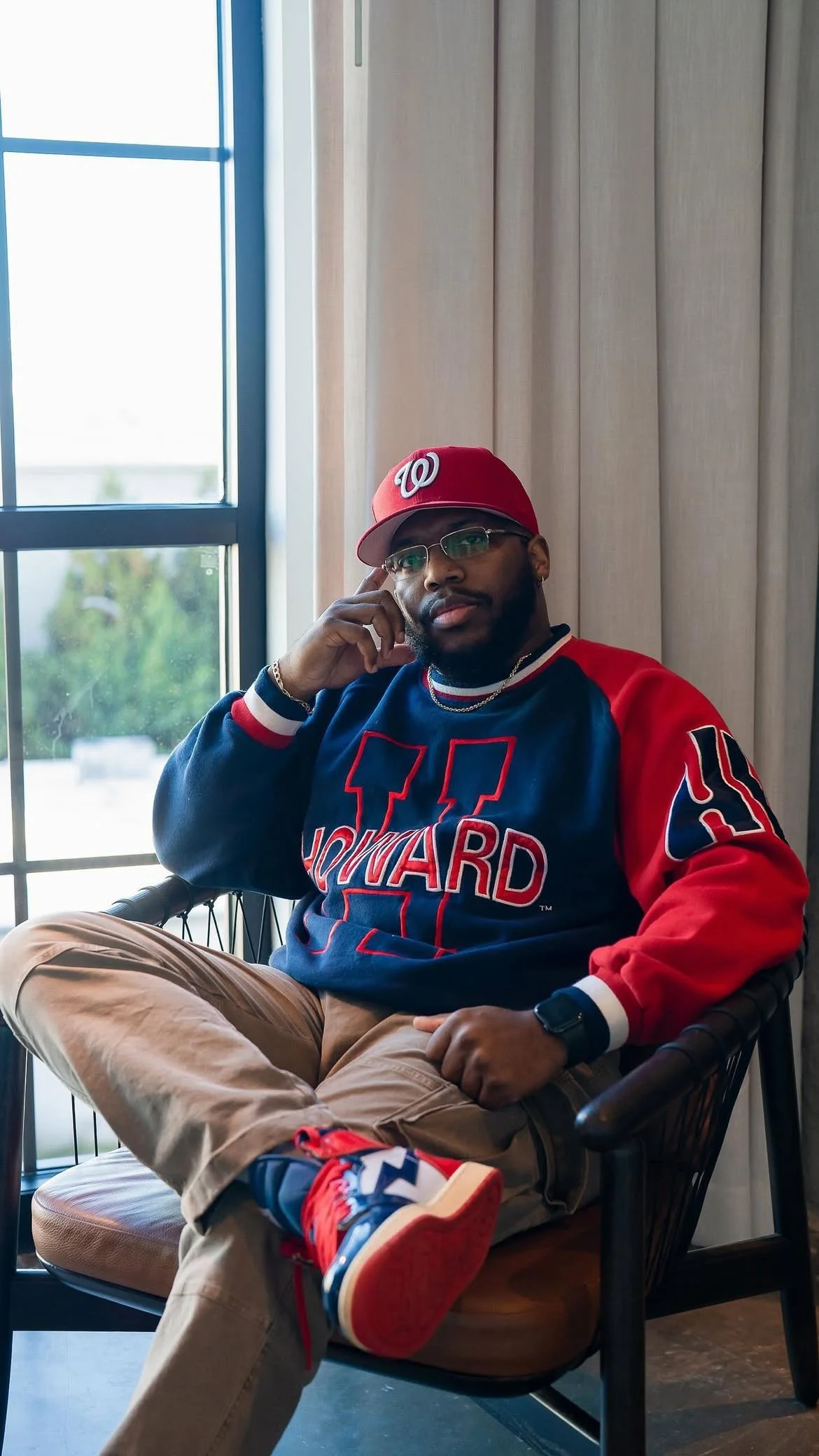Corey Arvinger is the founder and CEO of Support Black Colleges, a brand born from his passion for uplifting Historically Black Colleges and Universities (HBCUs). Inspired by his own transformative experience at Howard University, Corey co-founded the brand in 2012. What began as a personal project quickly gained momentum, attracting celebrity endorsements and a dedicated following. Corey's journey reflects his commitment to celebrating Black culture and education, making a lasting impact on communities across the country.
Support Black Colleges wasn’t originally intended to be an apparel brand, it started as a way to fill an unmet need for a campus state club. But once it caught the attention of students at other universities, everything changed. Can you take us back to that moment when you realized it could be something bigger?
How did you shift your mindset from creating something small for your campus to building a brand with national impact?
CA: I think when you see how people receive things that you do, you have to act on how they perceive it. For me, I was asked to do something for a specific state club, and it was fire. People were like, “Oh, this is dope.” I remember people who weren't in the campus club wearing the stuff and wanting more. I thought to myself, “We can make some more.” Now another state club wanted us to make something for them; they were eating it up, and it did really well. So I'm seeing that the things we're putting out are things that people want, and so I'm like, “Well, let me just put out something in general and see how it does.”
Initially, I didn’t want to have the same thing that everybody was wearing for Homecoming. So I just made a t-shirt that says, “Support Black Colleges,” in the same logo but kind of different, and their response was the same. A plus B equals C—it just makes sense.
As a business person—I was a business major at the time, too—I asked myself, why not run with what people want? That's kind of how I got started. I never intended for it to be a national brand or anything; I wanted to make some money. That's it.
Corey Arvinger in his Support Black Colleges warehouse (All rights reserved to owner)
How have you stayed true to your values of uplifting the awareness and impact of HBCUs, especially in spaces that may not always recognize their significance?
CA: I go authentically as myself everywhere I go, so I don't care if I'm in a room with execs from Amazon, the president of X company. When I'm there, I dress how I dress, I talk how I talk—either you accept it or not. I think when you do that, it allows people to feel like you're authentically yourself, which makes them want to invite you more into the rooms.
It's easy because HBCUs is not something that is a job for me; it's something that I'm a part of—it's the culture. It’s what I've ingrained into myself, so it doesn't feel like I'm pushing it. It feels like I'm being myself, and they get inspired because of that.
So it's really easy, to be honest with you, in any space. And if I can't be authentically myself, it’s not a space for me.
“Collaboration has been a very huge part of the brand. From the influencer standpoint, I think it just gives people the understanding that other people want this as well.”
- Corey Arvinger
You’ve had some major collaborations and celebrity support. What role has collaboration played in building your brand, and how can young creatives take the first step in putting themselves out there?
CA: Collaboration has been a very huge part of the brand. From the influencer standpoint, I think it just gives people the understanding that other people want this as well. Teyana Taylor was one of our big first influencers, and she completely turned it up for us—the way she was styling our brand and putting it together. With everybody looking at her for her fits, it really did something powerful for us and gave us an audience that we would have never had. Especially with women. We're a unisex brand, but when a woman can style something right, people think about it differently. And so she was one of the people that did that.
Between her and Chris Paul, they've been probably the biggest supporters when it comes to just pushing the brand forward. But we've had people like Fab, Chris Brown, DaBaby, Megan Thee Stallion—I mean, the names are kind of crazy, honestly. But it's a huge part, because you can't grow alone. You have to grow together, and it helps you grow faster.
As far as the brands, I think that the brands give you a legitimacy that people might not. Some people think, “Oh, you're just an Instagram brand,” but then we do something with the NBA, it's like, “Oh, wait, hold on.” And so when we started doing Urban Outfitters and Foot Lockers—now people are like, “Oh, this is an actual brand.”
Rapper Lil Baby (left) and Support Black Colleges CEO, Corey Arvinger (right). (All rights reserved to owner)
How has growing Support Black Colleges changed you personally, not just as a CEO but as a leader and visionary?
CA: It changed me in more ways than I probably can imagine. One I would say that people don't understand what a CEO is. Everyone's like, “Oh I'm a CEO, I run a business”, like they think it's this glorified role and it's really notified. When things go well, sometimes you don't get the credit and when things go bad, you get all the blame. So you know we had a few situations where things were out of my control with my manufacturers, my shipping people, my warehouse, but everyone looks at me. Even though I'm doing more than I can to fix the situation they still look at me. People say they want to be a CEO and I'm like, what does that mean? Because I also don't like operating every day in my business, I don't like the everyday operations, I like doing things that only I can do. I don't want to worry about hiring, firing or who's on the clock. But I need a leadership team to tell me those things, but it's stressful and it lets me know that I don't really care to be a CEO. I care to be able to use my marketing and brain and my ideas to do what I need to do and so I delegate as much as I can. That way I'm only doing high level things. So we have something called MWAs, which stands for minimum wage activities, I don't do any minimum wage activities. I'm not packing, I'm not shipping, I'm not doing customer care, I'm not doing emails, I'm not doing any of that. Anything you can hire somebody for is a minimum wage activity, it doesn't mean it's not valuable, it just means somebody else can do it. Things I'm doing, which is building relationships with these brands, which is getting on the phone calls with these CEOs, no one else can do. So those are the things I try to focus on, if it's not high level, I typically don't touch it. But sometimes you have to go back to go forward, so occasionally I do have to do some of those things now. But as I am in this new season of my business, I'm reverting to just go forward the right way.
What role does representation play in helping the next generation believe that their dreams and aspirations are truly possible?
CA: If a kid can see something, they can believe it’s possible. I used to go to this basketball camp every year called Achievements Unlimited. We had everybody from Michael Jordan, Vince Carter, I mean you name it, we had them and to see and hear their stories, they were like, “Oh, I was at a camp just like this, just like you.” So now I'm like, “Oh, I can do that, this is a possibility.” Then you have somebody like Stephen A. Smith, he came in and he was like 99% of y'all won't make it to play college basketball. I saw both sides, I remember one thing he always told me, he said, “You can make it to the league without making it to the league.” I didn't understand what that meant and I remember when I got my first MBA collaboration, I was like, I made it to the league, but I didn't make it to the league. It really put it into perspective like, “Dribbling a basketball is not the only way to make it to the NBA.” I've been to All-Star the last five years, I've been to games sitting courtside that people pay hundreds of thousands of dollars for. I've been in suites with CEOs, I was at a game with some of the heads of Verizon like a few weeks ago. It’s like I made it to the league, just not in the way that I envisioned. Having that representation matters, I'm with a group of CEOs out here in Atlanta. They all drive Lamborghinis and Bentleys and cars I never heard of, I never saw that before. I was in this group of people and when you see it, it makes it so much more achievable. I'm like, “Well, what did you do?” “I did this, this, this.” Okay that doesn’t seem actually too bad.
Want to hear more amazing stories like this? Check out our “More of Us” series! If you want to connect with Ryan and support the work he is doing, follow him on social at @coreyarvinger and @supportblackcollege, support his business Support Black Colleges.



